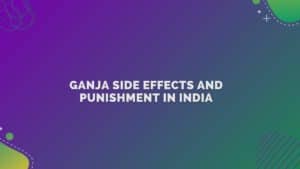Gambling is a popular pastime that can be exhilarating for many. However, it can
also be an addictive compulsion that takes a toll on the lives of its victims. Also
known as a gambling disorder, compulsive gambling has become a serious issue,
affecting people worldwide. This comprehensive blog closely examines compulsive
gambling. It delves into the challenges gamblers face, the chances of stopping the
behaviour, and the support available for those who need assistance.
Understanding Compulsive Gambling
Unfortunately, compulsive gambling is not merely a matter of personal choice.
Instead, it is a disorder characterized by an uncontrollable urge despite the toll it
takes on the lives of gamblers. This behaviour goes beyond socio-economic
boundaries to affect the rich and the poor. For most people, gambling usually starts
as harmless fun. But, in the long run, it evolves into compulsive gambling, an
insidious addiction that can cause adverse effects like financial ruin, strained
relationships, emotional distress, and more.
The Cycle of Addiction
Compulsive gambling can trap you in a vicious cycle of addiction if left unchecked. It comes with an intense anticipation of winning, which leads down the path of chasing losses. Breaking free from this behaviour requires one to address certain emotional factors. Fortunately, victims can break the harmful pattern with the right treatment, support from friends and relatives, and determination.
Recognizing and wrapping your head around this cycle is one of the best ways to start your journey towards a successful recovery. It also helps to deal with the emotional and psychological factors creating the urge to gamble, seek assistance from loved ones, ask for professional counselling, and utilize the best therapy options available.
The Effects on Individuals and Families
Compulsive gambling has adverse effects on close individuals and families of the affected person. From financial strain to broken trust and emotional turmoil, the behaviour can wreak havoc on relationships. It happens when the gambler’s obsession takes most of their time, leaving very little room for any meaningful connections with friends and family.
Families are the greatest victims of compulsive gambling as their loved ones prioritize gambling over everything else. The gambler causes the family’s financial stability to crumble and neglects responsibilities. This takes an immense emotional toll on family members, causing resentment and shattered bonds. Such effects can extend through generations, negatively impacting children’s well-being. Therefore, breaking free from compulsive gambling can help the individual restore harmony and rebuild the lost trust within families.
Seeking Help: The First Step Towards Recovery
Acknowledging that you have a problem is the pivotal first step for any compulsive gambler who wants out of the problem. Recognizing that your pursuit of gambling is out of control is essential as it helps you initiate the recovery process. From here, you need immense determination, support, and consistency, to mention a few.
Therapy and Counselling
It goes without saying that therapy and counselling are essential for compulsive gamblers. The two approaches address the root causes of addiction to ensure long-lasting treatment. For example, Cognitive-behavioural therapy (CBT) can help change the victim’s thought patterns and behaviours. This method can have far-reaching positive effects with therapists who offer guidance and support in the mix. It also empowers individuals to regain control. Supportive counsellors encourage positive change.
Support Groups
The saying goes, united we stand. With support groups, addicts have a safe space to share their experiences, offer mutual support for one another, and learn a lot from others who have defeated their addiction problems. In India, several support group organizations like Gamblers Anonymous (GA) have been instrumental in helping people reclaim their lives from the clutches of compulsive gambling.
Self-Exclusion Programs: Taking Control
Self-exclusion programs allow gamblers to take control of their addiction by banning themselves from accessing gambling facilities or websites for a set period. Many modern casinos and online gambling platforms have self-exclusion programs. Self-exclusion can be a barrier that alleviates the temptation of gambling while providing victims with time to focus on their recovery.
The Role of Family and Friends
Family and friends have a pivotal role to play in the recovery of a compulsive gambler. They offer essential emotional support and understanding during the gambler’s most difficult times. With people around them during the recovery journey, compulsive gamblers feel less isolated and motivated to alter their behaviour.
The empowerment and encouragement compulsive gamblers get from these people create a positive environment for progress. Family and friends can also help identify triggers and warning signs while emphasizing the significance of seeking help and staying committed to change. Such support can instil hope and optimism for a gamble-free future.
Is Complete Abstinence Necessary?
Complete abstinence involves refraining from all forms of gambling, like casinos, online betting, and lotteries. Several people have reported success after using this method. Others use harm reduction strategies, which involve setting strict limits on gambling to regain control while still engaging in it. The approach varies depending on individual preferences and the disorder’s severity. The choice between complete abstinence and harm reduction is entirely personal, as several factors are in play. Please consult a qualified professional for the most effective path to recovery.
The Road to Recovery: One Step at a Time
The road to recovery from compulsive gambling is gradual. The process is taken one step at a time, and each step signifies steady progress and growth. Again, the victim must embrace patience as setbacks are likely to occur. In the process, individuals need to build a support system, seek help from others, and embrace counselling. They should also learn from mistakes and be ready to tackle changes, as ups and downs are sure.
Remember, determination and consistency lead to success. Therefore, focus on your present life and stop giving your past failures attention. Focus, too, on the positive changes you’ve made and don’t forget to break the recovery journey into manageable pieces. Stay committed to your ultimate goal and always acknowledge your positive achievements, no matter how small.
The Bottom Line
In conclusion, while compulsive gambling is a formidable opponent, it is in no way invincible. With the right support, unwavering determination, and a willingness to change, it is possible to recover and enjoy a new life with stronger relationships and financial discipline. It is important to always remember that seeking assistance with compulsive gambling is a sign of strength. Therefore, if you’re struggling with a gambling disorder, you can always break the chains of addiction and live a brighter, gamble-free life with better goals.







